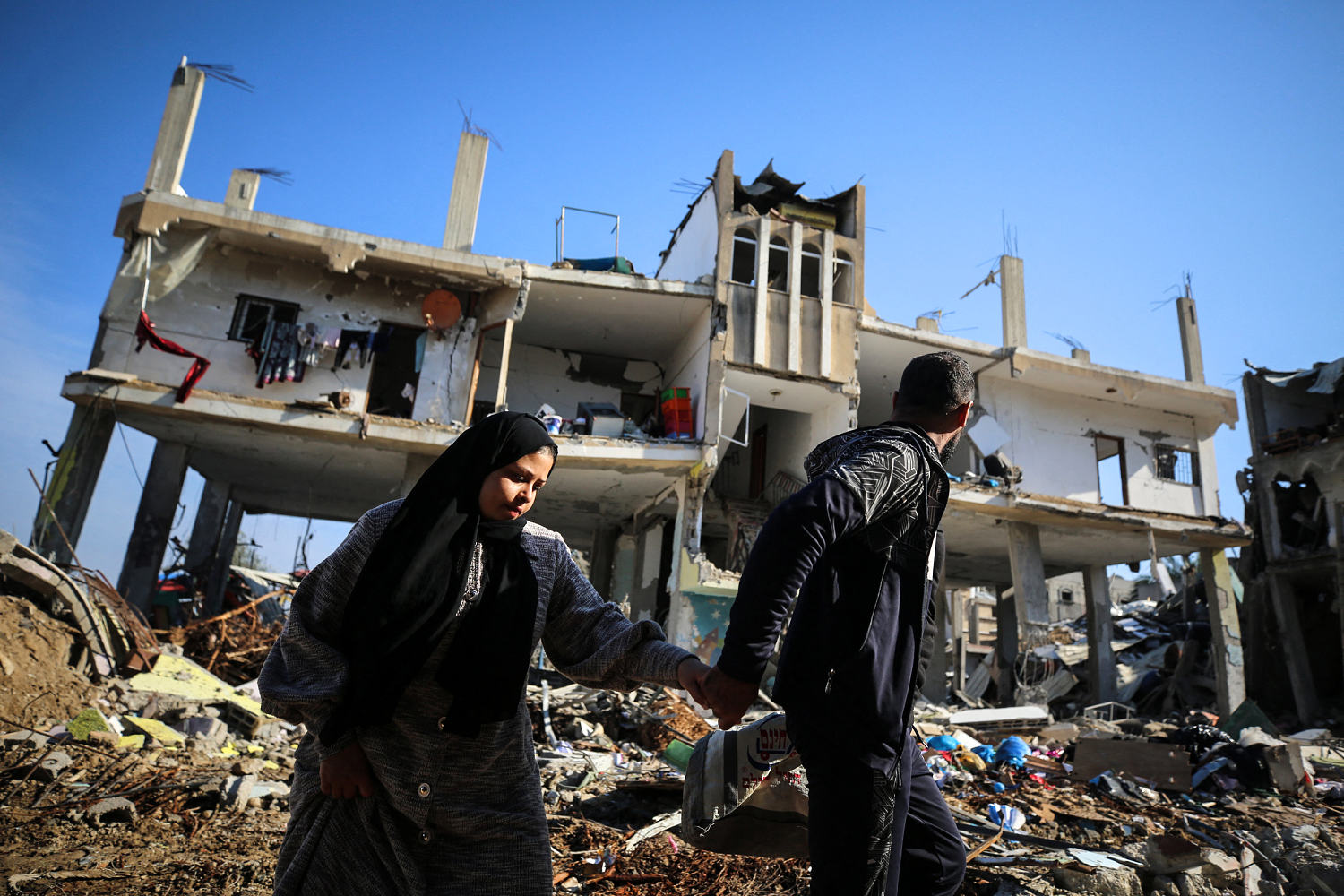We are an affiliate
Newsatw.com is a participant in the Amazon Services LLC Associates Program, an affiliate advertising program designed to provide a means for sites to earn advertising fees by advertising and linking to Amazon.co.uk.“As an Amazon Associate, I earn from qualifying purchases.”


As the Gaza Strip enters its second week of a near-total phone and internet blackout, some people in the war-torn enclave are using a lesser-known technology — eSIM cards — as a last grasp at contact with the outside world.
Most newer smartphones let users load an electronic SIM card rather than a physical one, both of which grant users access to wireless networks. Some Palestinians have resorted to using donated phone plans registered in other countries to catch a roaming signal from Israeli or Egyptian cell towers to reach people outside the region.
“Some of the Israeli networks reach inside Gaza,” Suhail Nassar, a photographer in Gaza who uses Instagram to document the war, told NBC via WhatsApp. “We don’t have any local network available right now. So either we buy the eSIMs or people around the world collect eSIMs for us and send them through WhatsApp, through emails,” he said.
The eSIMs are far from a perfect solution: Older phones can’t use them and an existing connection is needed to download new ones. Some of the eSIMs don’t work properly. And it can be hard to catch a signal from a cell tower across a border, Nassar said, which often requires climbing somewhere high, like the exposed roof of a building.
Many of the eSIMs are donated by activists who collect them from donors around the world. Mirna El Helbawi, a 31-year-old Egyptian writer who runs a project called Connecting Gaza, said she has distributed more than 100,000 eSIMs since the war began.
She and other activists use Instagram and X to solicit donors from around the world to purchase eSIMs from international phone carriers. They then pass them to a system of what El Helbawi calls “human routers” across Gaza with functioning eSIMs who can set up their phones as Wi-Fi hot spots to share additional eSIMs with others.
“The most heartbreaking thing is when we lose human routers due to bombings. Some of them were killed. It’s heartbreaking. But our first priority is to connect as many people as possible and not to let Gazans suffer in silence,” she said.
Gaza’s phone, wireless and internet connectivity has repeatedly been severely affected since Israel invaded in October, after Hamas staged a surprise attack that killed around 1,200 and saw some 240 kidnapped, according to Israeli officials. Since then, more than 24,000 Palestinians, including more than 10,000 children, have been killed, according to health officials in Gaza.
The besieged territory has experienced nine full telecommunications blackouts since then, according to NetBlocks, a company that tracks internet connectivity. The blackout that began Jan. 11 and is still affecting the region as of this article’s writing has been the longest.
Marwa Fatafta, head of Middle East policy for the digital rights nonprofit group Access Now, said the blackouts have been “traumatizing and agonizing.”
“For those who are on the ground, but also those who are outside. I mean, think about it. There are people I know who haven’t been able to reach out to their families in over a week,” she said.
“We’re talking about complete information blackouts. So you can’t make a phone call. You can’t access the internet. Humanitarian organizations are losing contact with each other except those who have satellite internet,” Fatafta said.
The area’s major telecommunications company, Paltel, has blamed both Israel’s electricity blockades on Gaza — telecommunications equipment requires substantial electricity to operate — and repeated Israeli airstrikes that the company said damaged communications infrastructure.
Paltel announced Sunday that two repair workers had been killed on the job. Company employees told The Washington Post that the workers had been “targeted” by Israel and that 13 of its employees had been killed since the war began. NBC News was unable to verify either claim. The Israel Defense Forces didn’t respond to an emailed request for comment.
Days after Hamas’ Oct. 7 attack, Israeli government spokesperson Eylon Levy said on X that Israel has “no moral obligation” to provide resources like electricity to Gaza while Hamas is “conducting a campaign of genocide” against Israel. Later that month, Levy blamed Hamas for having consistently shot down power cables used for electricity that Israel provided over years. That same month, Human Rights Watch urged Israel to restore resources like electricity in Gaza immediately and called any denial of it a form of collective punishment.









